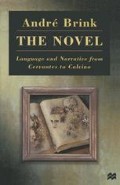Abstract
The aestheticism that had been the hallmark of much Modernist fiction reached an extreme in Alain Robbe-Grillet’s concept of ‘une histoire qui n’avait d’autre réalité que celle du récit [a story which has no other reality than the narrative]’ (Robbe-Grillet 1963:132). But there is, at the same time, an opposite impulse in the nouveau roman, which places it on the cusp between Modernism and Postmodernism, that is, the urge to democratise the novel, to offer at least an illusion of accessibility which will lure the reader across the threshold of the narrative: hence especially Robbe-Grillet’s regular recourse to versions or inversions of popular forms like the detective novel. ‘En somme’, says Janvier (1964:49), ‘le Nouveau Roman, c’est le policier pris au sérieux [In short, the Nouveau Roman is the detective story taken seriously]’.
Preview
Unable to display preview. Download preview PDF.
Copyright information
© 1998 André Brink
About this chapter
Cite this chapter
Brink, A. (1998). The Perfect Crime. In: The Novel. Palgrave, London. https://doi.org/10.1007/978-1-349-26514-5_11
Download citation
DOI: https://doi.org/10.1007/978-1-349-26514-5_11
Publisher Name: Palgrave, London
Print ISBN: 978-0-333-68409-2
Online ISBN: 978-1-349-26514-5
eBook Packages: Palgrave Literature & Performing Arts CollectionLiterature, Cultural and Media Studies (R0)

